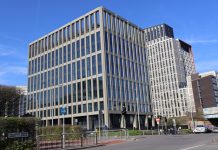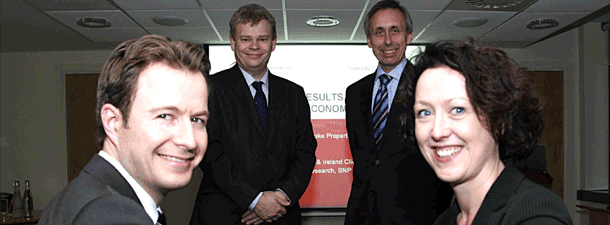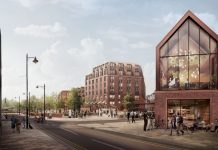Unemployment should begin to fall as growth picks up next year, a property expert has predicted.
Claire Higgins, head of research at BNP Paribas Real Estate, indicated Government hopes for a private sector jobs surge to help mop up losses in the public sector appeared to be coming true.
Her comments came at a meeting of the Investment Property Forum to hear a Quarterly Index annual presentation by performance analysis specialists, the Investment Property Databank, held at the Birmingham offices of law firm Squire Sanders.
Offering her thoughts on the economy and how it will likely affect the property market, Ms Higgins suggested unemployment – currently standing at 8.4 per cent – would likely rise in the short term as the UK went into a ‘shallow’ recession, with another 0.2 per cent reduction in GDP in the first quarter on top of the setback in the final three months of 2011.
Nevertheless, further quantitative easing and the Olympics effect should still produce a tiny increase in GDP for 2012 of 0.1 per cent, with stronger growth being seen in 2013.
She said: “Unemployment, particularly youth unemployment, has been a problem. We are likely to see further rises. But as the economy strengthens the trend should go into reverse.”
Ms Higgins highlighted how since 2009 350,000 jobs had been lost from the public sector but in the same period double that had been created in the private sector. And, while the Government had forecast an eventual total of 600,000 job losses in the public sector, the overall balance continued to head “in the right direction”.
And it was not just part-time jobs replacing full-time ones. Full-time numbers were increasing although that needed to happen much faster. “It is a change for the better and more in line with what we would expect from a healthy economy.”
All this translated into a property market which was experiencing slow capital growth yet still a “reasonably healthy level” of investment – the West Midlands saw £1.2 billion last year, 13 per cent of the regional total outside of London and the South East.
When demand returned as it eventually would, with the development tap turned off for so long and hence limited quality space available, rents should rise.
Malcolm Hunt, head of UK & Ireland client services for IPD, said a 1.4 per cent total return in the fourth quarter had produced a “satisfactory” 7.8 per cent for 2011 as a whole, even if that was almost half 2010’s 15.2 per cent.
Birmingham had seen total 2011 returns of six per cent for industrials, 5.9 per cent for retail and one per cent for offices.
But capital growth – down 0.1 per cent in the fourth quarter – had stalled at -30.3 per cent from its 2007 peak despite a 21 per cent recovery.
Across the country, the regional office market had been dented by public sector cuts while the secondary shopping market was struggling.
Though leisure assets were doing well, overall prime growth was up just 0.6 per cent in the final quarter of 2011, whilst secondary assets lost -1.9 per cent of their value. And should there be increased distressed asset sales by the banks then the figures could be further dampened.
There were 2011 capital growth falls of -0.7 per cent for both retail and industrials, with offices down 5.3 per cent.






















